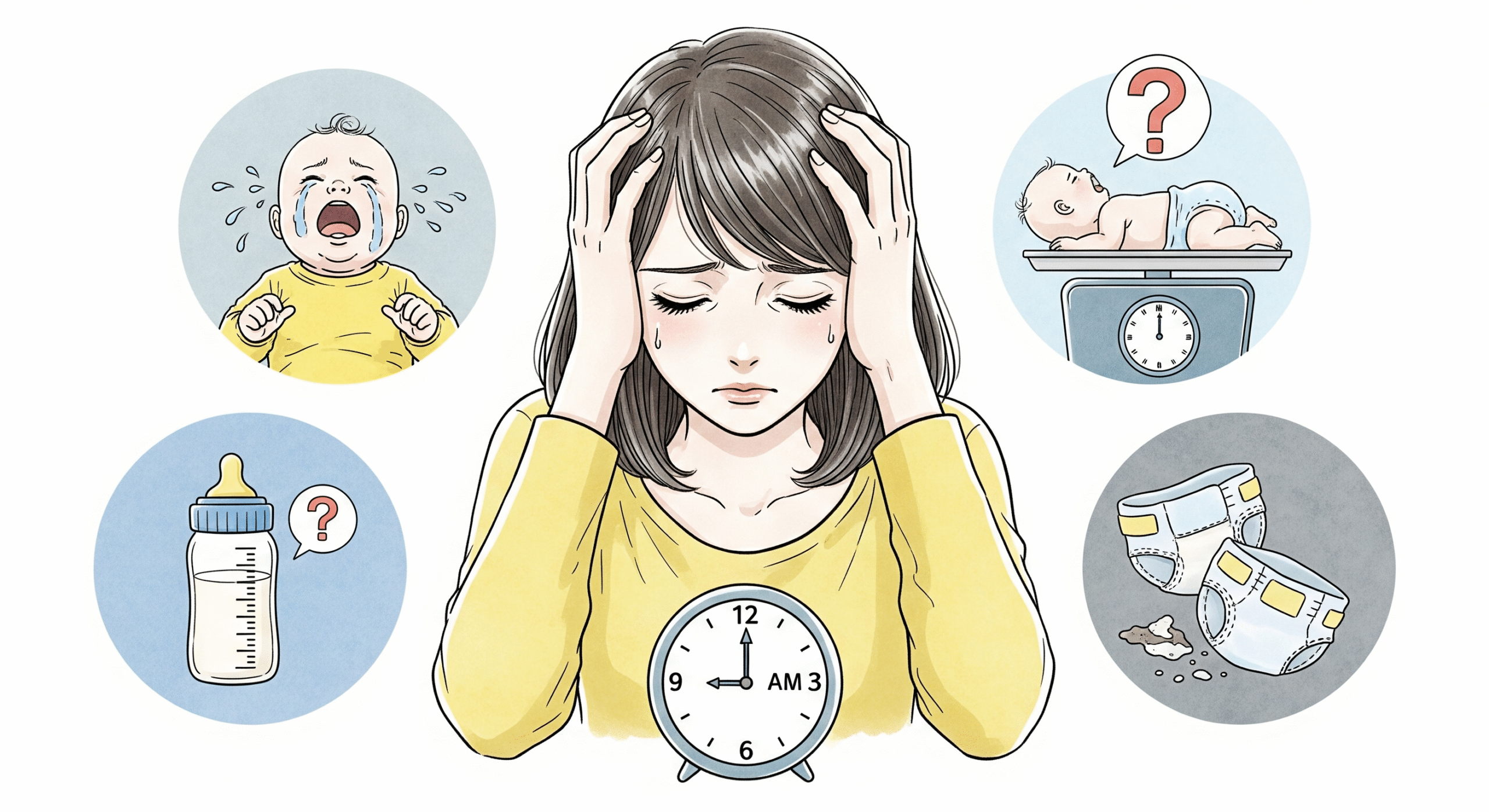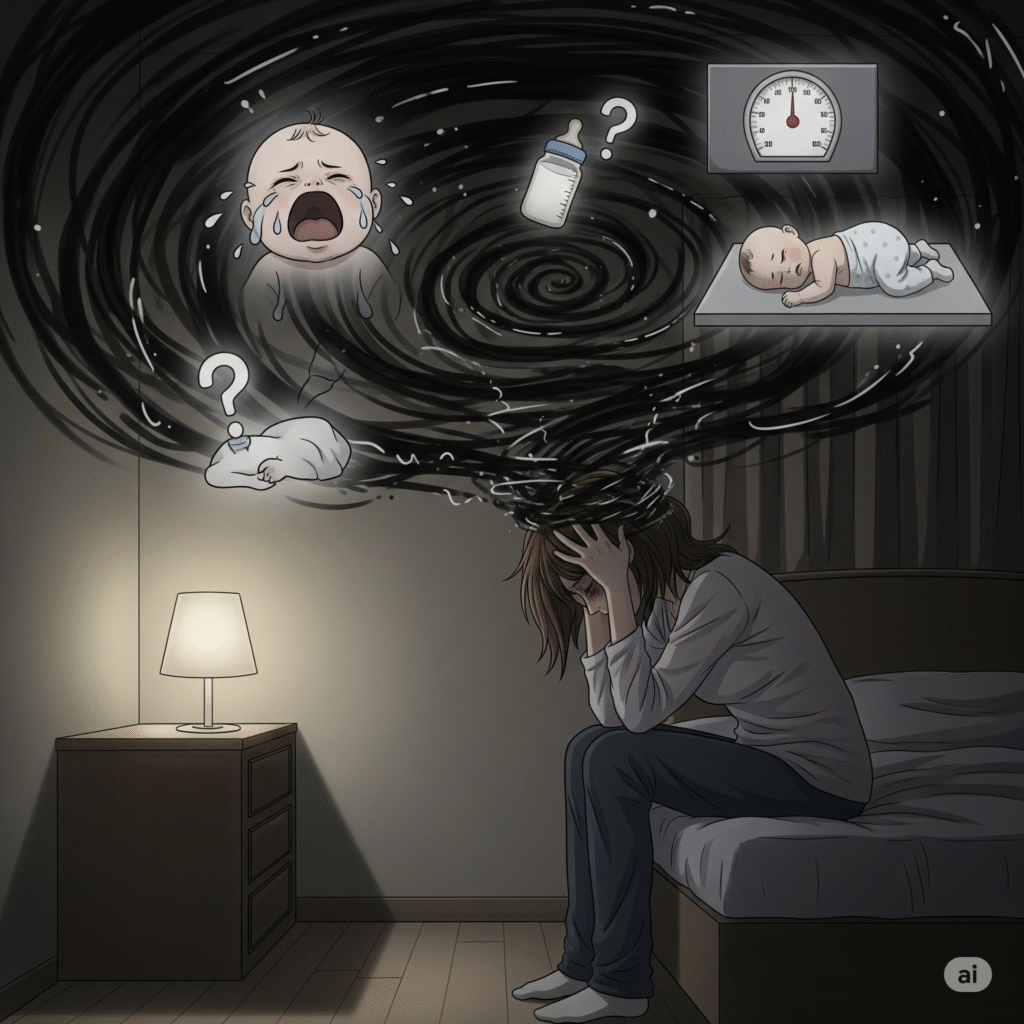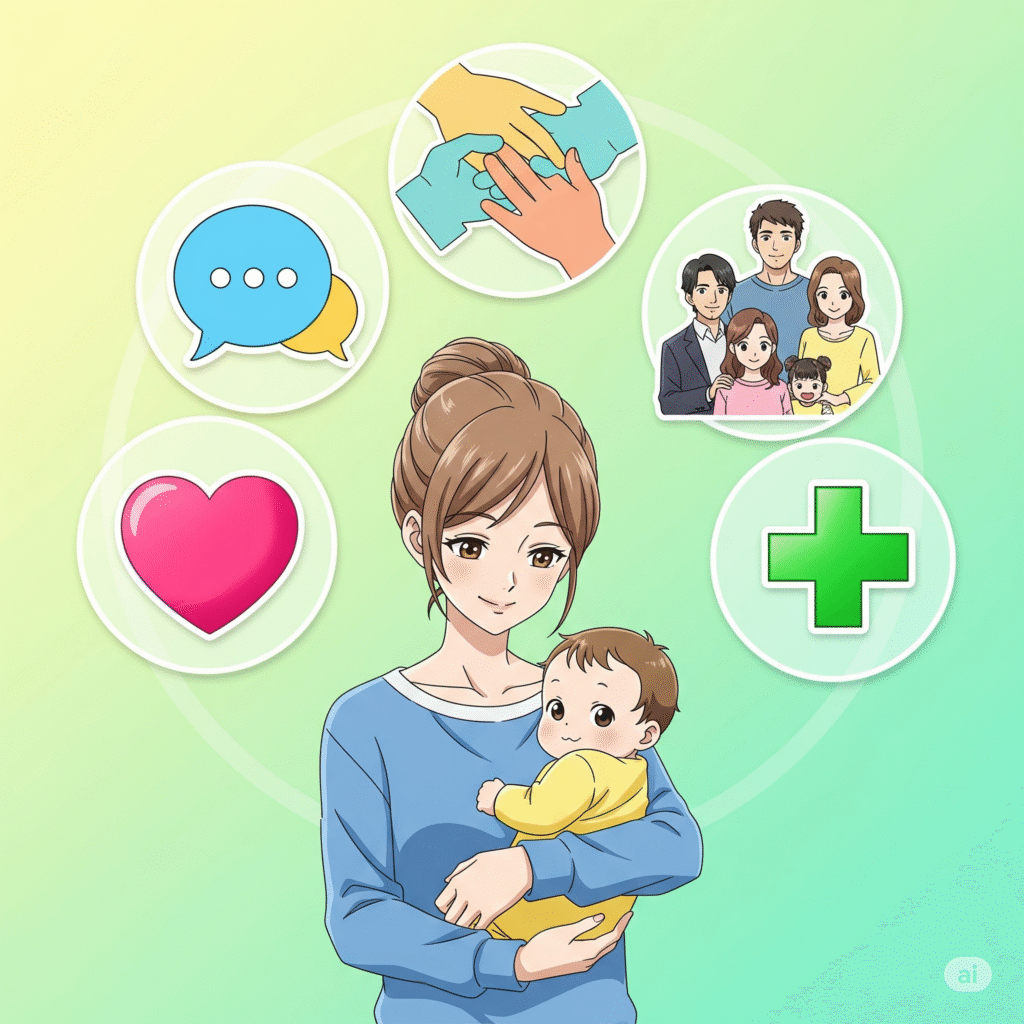Physical Address
304 North Cardinal St.
Dorchester Center, MA 02124
Physical Address
304 North Cardinal St.
Dorchester Center, MA 02124

Mental health is a huge and important topic, but it’s one we often don’t discuss nearly enough, especially when it comes to the journey of parenthood. While the stigma is slowly lifting in our society, for new parents, opening up about their struggles can feel incredibly difficult.
Over a series of posts (mental health is such an important topic, it deserves more than a single post), I want to explore this from a few different angles. For this first part, I want to focus on one of the most transformative and vulnerable times. The very beginning, from the perspective of a new mother.

Imagine the scene: you’re a new mum. You have just been through one of the biggest, most monumental journeys of your life, bringing a new baby into this world. The congratulations pour in, and the road ahead is filled with so much joy, but also so much hard work. And so little sleep… I can most parents can relate with the lack of sleep.
Let’s take a moment to look at this from your perspective. Your body has just gone through a colossal physiological change. No matter how much medical science has advanced, childbirth is a demanding, difficult, and deeply personal process. The physical recovery alone is a significant challenge.
But on top of those physical changes, you now have a tiny, defenceless baby who depends on you for everything. They need to be fed every couple of hours, day and night. They might cry for long stretches, for reasons you can’t yet understand. And through all of this, you are navigating your own exhaustion, likely running on a sleep deficit that feels almost impossible to overcome.
To put it mildly, that early period isn’t easy. It’s a time of immense change, overwhelming love, and profound challenges.
Amidst the constant cycle of feeding, burping, and changing, it’s vitally important to remember that you need to look after yourself too. The physical exhaustion is undeniable, but the mental toll it takes is just as draining. Around the clock, your mind is on the baby. Babies, despite not moving much, can poop, wee, vomit, and dribble constantly. They are not clean! Just keeping them clean and comfortable is a huge job, but you have to find a way to care for yourself as well. It can be non stop when you have a child, especially a newborn who has just come into the world and needs help with everything.

You lack sleep and probably have very little energy, but you know you just have to tough it out because your baby needs you. For most people, this is what happens. You keep at it, you push on, and you get through those first blurry days and weeks. You establish a bit of a routine, and things slowly, day by day, become that little bit easier. Hopefully, for the majority of people, this is the case.
However, for many new mothers, there’s something constantly gnawing at the back of their minds. A relentless stream of questions:
It’s completely normal to ask these questions. As parents, we want to do our very best. The important thing is not to let these questions weigh you down. The danger comes when you start to think too deeply about them, and they begin to spiral. You might start blaming yourself for perceived failings or get bogged down in an endless loop of “what ifs.” When this happens, you lose the mental capacity for the important things, and that’s when cracks can start to appear.
This is how a dangerous spiral can begin. If your mental health is not looked after, depression and other nasty demons can take hold. If you find yourself already at this stage, constantly consumed by these thoughts with no energy for anything else, please seek help from a professional. For a new mother who has just given birth, this is a particularly vulnerable period, and it may not take much to be pushed close to the edge.


This is why it is hugely important for a new mother to be surrounded by a capable and compassionate support system. There is so much truth in the saying, “It takes a village to raise a child.”
To all the new mothers out there: there is no shame in asking for help. The more help you have, the lighter the load on your shoulders, and the more energy and presence you can offer your baby.
Remember, asking for help is not a sign of weakness. Recognising your limits and reaching out when you need support is a true sign of strength.
I’m sharing this because we’ve been through it. For us, this was a difficult period. We’re fortunate to live in Australia, where the healthcare around childbirth is excellent, and we are lucky enough to have private health care, which gave us extra support. We had a private room, an obstetrician, and a team of nurses and midwives assisting with the care of both mum and baby for the first five days. We also had wonderful support from family and friends who visited and helped however they could, so we could just concentrate on our newborn.
Even with all this, there’s no denying the huge impact it had on the mental health of a new mother.
While the birth was mostly straightforward, this was our first time. Our son was born healthy, but he was slightly on the lower end of the weight scale. The advice was simple: “Nothing to worry about, a good couple of breastfeeds will fix that.”
However, anyone who has been through it knows that breastmilk production can be a fickle thing (perhaps a story for another day). While things were starting, it wasn’t as free-flowing as it needed to be. In the first couple of days, our baby boy, who was supposed to be putting on weight, had actually lost some, thought apparently it was within the tolerance.

To be clear, our son is now a thriving six-year-old and we’ve had no issues since, but that particular period was hard. We had session after session with specialists, lactation consultants on breastfeeding techniques, midwives and nurses who also offered plenty of advice and opinions, doctors advising on how to increase production, and then the whole question around formula supplementation (also another topic for another day).
This single episode put so many difficult questions into our minds that we just didn’t have answers for. It was constantly eating away at us, and it became a particularly dark period. Luckily, we had that good support network and access to professionals who assisted us. While not everything worked perfectly, in the end, we managed, and our little bubba started putting on weight and grew into the boy he is today.
But I want to be honest. Even with that level of support, there were times we felt depressed and overwhelmed. It took our minds to some dark places.
For others, no doubt it is an equally challenging time. So, for those who have recently given birth or are part way through their pregnancy, we suggest a few things for you to consider and to keep in mind.

1. Talk to Your Partner This is one of the most important things you can do. Communicating how you feel means you’ve acknowledged that something isn’t quite right. Your partner is going through this with you and knows your situation best. Sharing that burden is vital. They can also help look after the baby to give you some desperately needed downtime to just relax. You are a team, face it together. You’ve already done a lot of the heavy lifting with the childbirth! So get your partner to help out more!
2. Lean on Your Support Network The “village” is real, so lean on yours if you can. Family and friends can be a lifeline. Whether it’s helping to cook a meal, doing a load of laundry, or just holding the baby so you can have a shower, any little bit of help reduces your workload. More importantly, talking with them can offer new perspectives and a listening ear.
3. Don’t Judge Yourself Too Harshly You are doing the best you can, and that is always enough. Everyone’s circumstances are different, and mental health can be an invisible struggle that hits without warning. One minute you feel on top of the world, the next you’re mulling over something that feels wrong. Be kind to yourself and remember that what you are doing is incredible.
4. Seek Professional Help if You Need It There is absolutely no shame in this. Professionals are in the best position to help, notice the signs, and put a plan in place. A great first step is to speak with your local GP. You can also reach out directly to your Maternal and Child Health Nurse, who is a fantastic resource in those early weeks. For immediate support, organisations like PANDA (Perinatal Anxiety & Depression Australia) have a national helpline (1300 726 306). You do not have to go through this alone.
5. Find Your Tribe in a Mothers’ Group Here in Victoria, your Maternal and Child Health Nurse will likely connect you with a local Mothers’ Group. This is a wonderful initiative, usually run by the local council, that brings together new mums in your area whose babies were born around the same time as yours.
The magic of these groups is the shared, real-time experience. Everyone in the room is navigating the same sleepless nights, feeding challenges, and overwhelming emotions at the very same time. This creates an incredible sense of solidarity and understanding. While you may not have known these people for very long, facing the same adversity together can forge powerful and meaningful bonds. We’ve personally made some wonderful, lasting friendships through our own mothers’ group.
These groups are specifically designed to help you meet others, share your concerns, and learn together in a safe space. If a council-run group isn’t available to you, there are many similar communities established online through social media that can be just as helpful. Finding your people, your tribe, can be a vital resource to lean on.
After all this serious talk about mental health, I want to leave you with a crucial reminder. The first few weeks with your newborn are absolutely magical. The time you spend together, whether it’s a quiet midnight feed, a sleepy cuddle on your chest, or even fumbling through a nappy change, is precious. This is a profound time of learning for both of you. The entire reason to be so vigilant about your mental health is to protect these moments. Babies grow so quickly, and you deserve to be 100% present, physically and mentally, for this fleeting, beautiful chapter.

Please remember, I’m not a medical professional. I’m just another parent who has been through something similar and came out the other side. Mental health is not easy to deal with, and it’s not something to be ignored. Don’t just bottle it up and hope it goes away, as things can fester and cause more problems down the track.
Talking to people is the most important step because it means you’ve acknowledged that something may not be right. And only then can you begin to do something about it.
If this story resonates with you and you feel comfortable sharing your own experience, please feel free to leave a comment or contact us. Sometimes, just knowing someone else has been there can make all the difference.